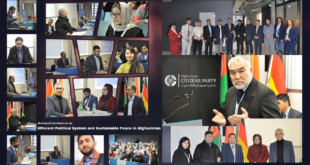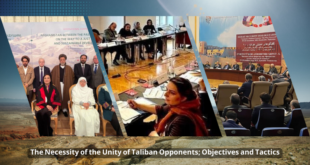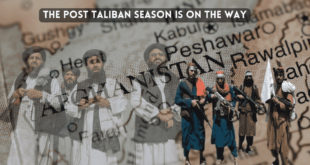Amir Khan Moataqi’s assertion in Tehran, attributing hostility towards the Persian language to malicious actors, has garnered significant attention on social media. Concurrently with the initiation of formal negotiations between the Taliban and the United States in 2018, an extensive propaganda campaign propagated the purported transformation of the Taliban from their 1990s stance. This narrative persisted until the fall of Kabul and the Taliban’s resurgence to power. Throughout diplomatic discussions and regional engagements, the Taliban consistently underscored their commitment to women’s rights, determination to shape the country’s governance through intra-Afghan dialogue, and adherence to the popular will. However, upon reclaiming authority, they disregarded these proclamations, reverting to ethnocentric, authoritarian, and profoundly conservative policies reminiscent of the 1990s. Nevertheless, the Taliban’s conduct in the past two and a half years signifies a departure from their 1990s approach, characterized by the adoption of a strategy involving duplicity, deceit, and concealment. In contrast to their expulsion from power following the September 11, 2001 incident due to their inability to conceal support for Al-Qaeda, their current behaviours reflects a distinct trajectory.
The salient feature characterizing the Taliban in the contemporary epoch is their adoption of a policy marked by duplicity. Their comportment and rhetoric across diverse domains, encompassing interactions with terrorist entities, erstwhile government functionaries, women, minority groups, and assorted ethnicities, exhibit a discernible lack of coherence. Presently, notwithstanding their deliberate and extensive collaboration with international terrorist organizations, they officially disavow any such alliance. Despite precluding women from engaging in all facets of societal involvement, they assert a commitment to the principles of women’s rights, ostensibly recognizing their entitlement to formalized access to education and employment. Their policy ostensibly aspires to orchestrate societal metamorphosis and demographic transitions within the nation, all the while maintaining a narrative that purports to serve the interests of all ethnic groups in Afghanistan. Despite the exclusive appointment of individuals belonging to the Pashtun ethnicity to all governmental positions, they assert the inclusivity of their governance, purporting the active involvement of diverse ethnic groups in the administration of the country. Notably, the targeted elimination of political dissidents, governmental officials, military personnel from preceding administrations, and media personalities is pursued concurrently with the assertion that such actions constitute measures taken in response to perceived adversaries, framed within the context of pursuing and prosecuting illicit activities.
In the recent episode involving Amir Khan Mutaqi, the Foreign Minister of the Taliban, during his diplomatic visit to Tehran, the group’s disapproval of the Persian language has been contested. Mutaqi contends that the exclusion of Persian from university insignia and various banners, typically presented in Pashto and English, as well as the issuance of directives proscribing the use of terms such as “university,” “faculty,” and related terminology, is ascribed to the activities of malicious individuals and is dissociated from the Taliban’s official stance. This assertion stands in stark contrast to the existence of official correspondences and missives emanating from diverse Taliban entities, overtly expressing antipathy towards Persian. The repudiation of antagonism towards the Persian language aligns with the overarching framework of the Taliban’s policy of duplicity. Nevertheless, the substantial body of evidence and conspicuous documentation contradicting this claim is so manifest that Mutaqi’s pronouncements have undergone a metamorphosis into acerbic satire, sparking discourse among denizens of social media.
 حزب شهروندان افغانستان وبسایت رسمی حزب شهروندان افغانستان
حزب شهروندان افغانستان وبسایت رسمی حزب شهروندان افغانستان


